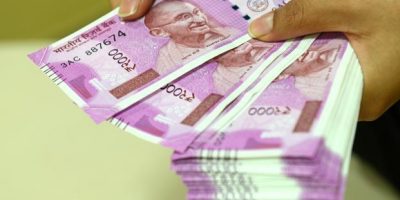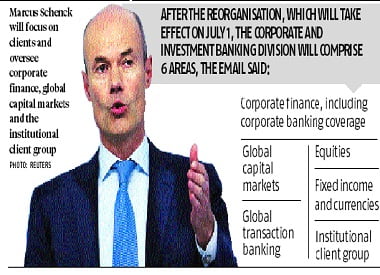
The European Central Bank’s stimulus package isn’t that bad after all.
Global stocks and sovereign bonds unwound the previous session’s losses as traders warmed to ECB President Mario Draghi’s policy measures. Credit markets, the main beneficiaries of the program, extended Thursday’s rally and the euro weakened. Oil led commodities to a three-month high and supported emerging markets after China strengthened the yuan’s fixing by the most in four months.
Markets were whipsawed in the wake of the ECB’s policy announcement, which included a reduction in borrowing costs and an expansion of the central bank’s quantitative-easing to corporate bonds, before Mr. Draghi asserted that he didn’t anticipate cutting interest rates further. Central banks remain key to the health of the global economy, with measures by the People’s Bank of China and separate meetings next week by the U.S.Federal Reserve, the Bank of Japan and Bank of England all closely watched.
“Since the Feb. 11 lows in the equity market, global recessionary fears have receded, and that has been key,” Joe Quinlan, chief market strategists at U.S. Trust, Bank of America Private Wealth Management, said by phone. “What the ECB did yesterday helped that momentum and that train of thought become more ingrained, that they will do whatever it takes and then some for global economic expansions.”
The Standard & Poor’s 500 Index climbed 1.2% at 10:50 a.m. in New York, erasing a loss for the week. The Stoxx Europe 600 Index jumped 2.4%. West Texas Intermediate oil added 1.9% to $38.55 a barrel and the euro fell 0.2% to $1.1152.
STOCKS
Banks, energy and technology shares, which have paced the rebound in equities since mid-February, led gains in the S&P 500 on Friday. The index pared its loss in 2016 to less than 2% and is headed for a fourth straight weekly gain, the longest run since October.
Spanish and Italian banks led the rebound in the Stoxx 600, while carmakers also climbed more than 3% as a group, helped by the weakening euro. Deutsche Bank AG rose 65.9% after people with knowledge of the matter said it’s in talks with lenders to sell the last batch of its 1 trillion euros portfolio of complex financial instruments.
The Stoxx 600 ended up falling on Thursday, even as the ECB cut its key interest rates and expanded its bond-buying program. The Euro Stoxx 50 Index of the biggest euro-area companies moved more than 5% intraday, its wildest swing since August, and the most on an ECB day since 2011.
Gains in stocks weren’t limited to Europe as the MSCI Asia Pacific Index added 0.8%.
BONDS
Euro-area government bonds gained as the dust settled on the ECB’s latest stimulus measures. Italian, Spanish and Portuguese securities led the advance, outperforming their higher-rated peers.
“The ECB overdelivered, as we thought they would, albeit in a more complex configuration than we looked for,” Peter Chatwell, head of rates strategy at Mizuho International Plc in London, wrote in a note to clients. “The negative market reaction appears more linked to rate cuts being priced out. The market will get over this.”
Italy sold three-year debt at a negative yield for the first time on record on Friday. The country’s 10-year bond yield dropped 12 basis points to 1.34%, after climbing five basis points the previous day. Germany’s 10-year bund yield fell two basis points to 0.28%, after rising to 0.33% Thursday, the highest since Feb. 2.
The cost of insuring corporate debt against default fell to about the lowest this year.
The price of credit-default swaps on investment-grade corporate debt dropped after the
ECB announced plans to start buying euro-denominated bonds issued by highly rated non-bank companies.
CURRENCIES
While the euro weakened Friday on renewed optimism over the ECB plan, it only pared about half of Thursday’s gain. The Bloomberg Dollar Spot Index was little changed, set for a 0.7% weekly loss.
In China, the yuan strengthened as much as 0.32% versus the greenback, briefly erasing its loss for the year, after the People’s Bank of China strengthened its daily reference rate by 0.34%. The magnitude of the PBOC’s change was a surprise, according to Khoon Goh, senior currency strategist at ANZ in Singapore.
The boost to the yuan also lifted the currencies of countries that export raw materials. Australia’s dollar approached its highest level since July, Canada’s climbed toward a four-month high, South Africa’s rand surged 2.2% and the Russian ruble jumped 2.3%.
COMMODITIESThe Bloomberg Commodity Index, which measures returns on raw materials, advanced 0.7% to a three-month high, led by advances in oil.
Crude jumped as much as 3% in New York amid signs of rising U.S. fuel demand and easing production. Gasoline consumption the past four weeks was at the highest level since September, while oil output remained near the least since November 2014, according to data from the Energy Information Administration Wednesday. Prices may have passed their lowest point, the International Energy Agency said Friday.
Industrial metals rose in London, with copper, lead and tin climbing more than 1%. Commodities are showing signs of bottoming with supply growth in industrial metals slowing considerably, analysts at Australia & New Zealand Banking Group Ltd. led by Daniel Hynes said in a note Friday.
Iron ore futures in Singapore sank back toward $50 a metric ton, further eroding Monday’s record surge to $58.66, the highest price since June. After the jump, Goldman Sachs Group Inc. and Citigroup Inc. reiterated bearish forecasts for iron ore.
EMERGING MARKETS
The advances in crude helped emerging-market currencies rally for a second week after China strengthened the yuan’s fixing.
Emerging stocks climbed as much as 1.4% to the highest level since December, extending a second weekly gain. Equity indexes across emerging Europe gained, with Hungarian stocks advancing 1.5%.
[Source:- Investmentnews]



